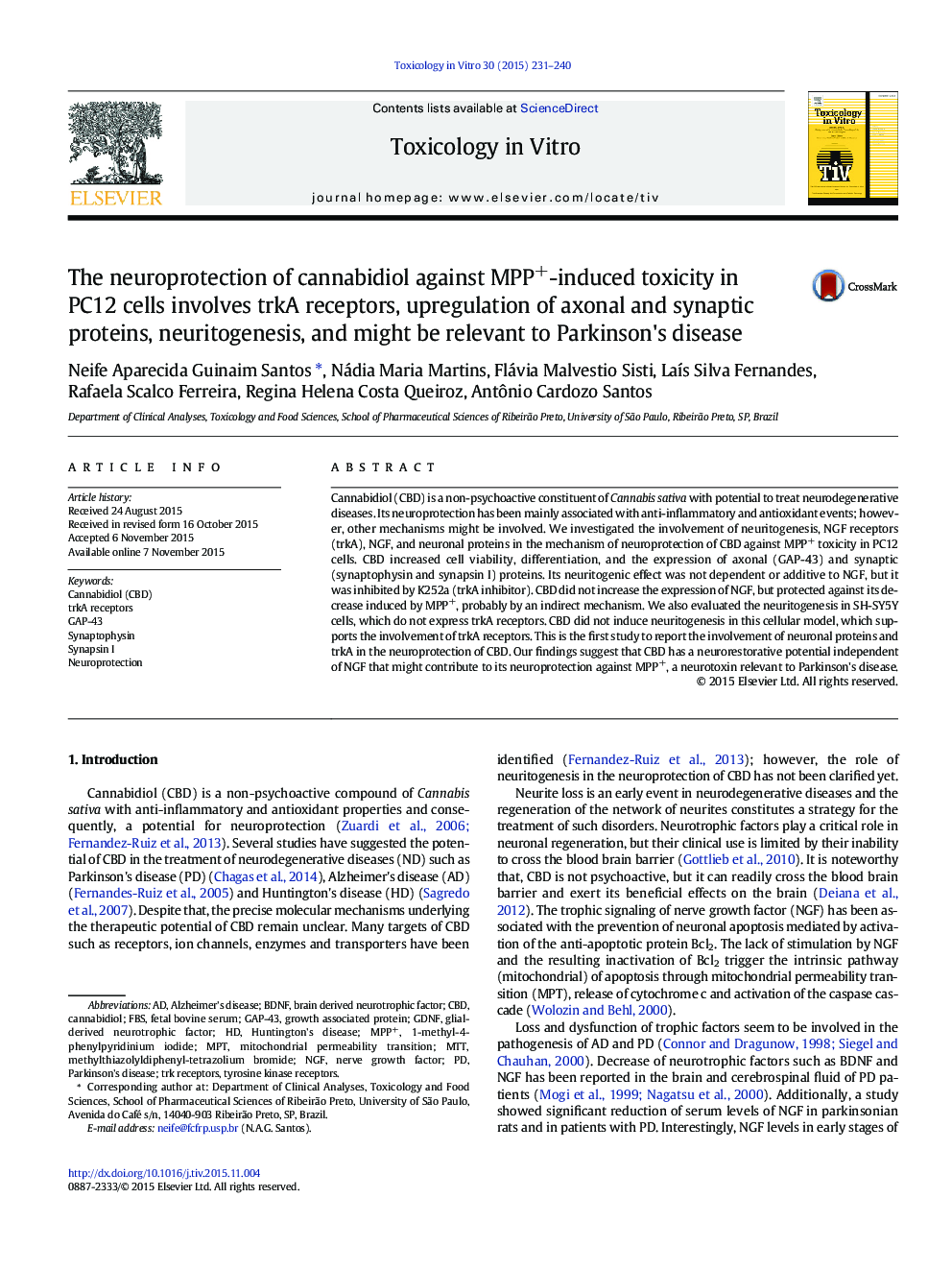| کد مقاله | کد نشریه | سال انتشار | مقاله انگلیسی | نسخه تمام متن |
|---|---|---|---|---|
| 2602411 | 1562715 | 2015 | 10 صفحه PDF | دانلود رایگان |

• The neuroprotection of cannabidiol against MPP+ in PC12 cells involves neuritogenesis.
• The mechanism is independent of NGF, but involves the receptors of NGF, trkA.
• The mechanism involves increased expression of axonal and synaptic proteins.
• SH-SY5Y cells might not be a suitable model to study the neuroprotection of CBD.
• The neuroprotection of CBD might be beneficial in Parkinson's disease.
Cannabidiol (CBD) is a non-psychoactive constituent of Cannabis sativa with potential to treat neurodegenerative diseases. Its neuroprotection has been mainly associated with anti-inflammatory and antioxidant events; however, other mechanisms might be involved. We investigated the involvement of neuritogenesis, NGF receptors (trkA), NGF, and neuronal proteins in the mechanism of neuroprotection of CBD against MPP+ toxicity in PC12 cells. CBD increased cell viability, differentiation, and the expression of axonal (GAP-43) and synaptic (synaptophysin and synapsin I) proteins. Its neuritogenic effect was not dependent or additive to NGF, but it was inhibited by K252a (trkA inhibitor). CBD did not increase the expression of NGF, but protected against its decrease induced by MPP+, probably by an indirect mechanism. We also evaluated the neuritogenesis in SH-SY5Y cells, which do not express trkA receptors. CBD did not induce neuritogenesis in this cellular model, which supports the involvement of trkA receptors. This is the first study to report the involvement of neuronal proteins and trkA in the neuroprotection of CBD. Our findings suggest that CBD has a neurorestorative potential independent of NGF that might contribute to its neuroprotection against MPP+, a neurotoxin relevant to Parkinson's disease.
Journal: Toxicology in Vitro - Volume 30, Issue 1, Part B, 25 December 2015, Pages 231–240